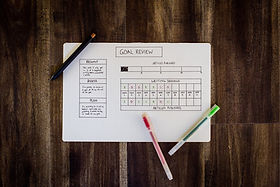![Copy of [Original size] Lifeakery (2).pn](https://static.wixstatic.com/media/945861_a39f515cbc5f4695a5e5cded4375b16b~mv2.png/v1/crop/x_0,y_659,w_1500,h_841/fill/w_184,h_101,al_c,q_85,usm_0.66_1.00_0.01,enc_avif,quality_auto/Copy%20of%20%5BOriginal%20size%5D%20Lifeakery%20(2)_pn.png)
reading skills
The importance of taking notes
Taking Notes - Why is it important to get it right?
The ability to make clear and concise notes is one of the most important skills you will need throughout your studies. As you make notes, you start to gain a deeper understanding of the subject and capture the essential points of the topic.
During your course, you will make notes from a variety of information sources including books, journal articles, video and electronic databases. You will also make notes in your lectures and other teaching sessions such as tutorials and seminars.
Why take notes?
It will help you if you reflect on why you take notes in lectures. Consideration of these reasons will help you to decide if it is important for you to take notes in a particular situation at a particular time.
Notes are:
-
A memory aid for revision
-
A reminder of the main points of a lecture, tutorial or seminar
-
An important source of material for an essay or seminar
Note-taking:
-
Aids concentration
-
Builds up an understanding of the topic
-
Promotes questions and debate
How to take effective notes
Thomas Frank, author at Info College Geek, gives a crash course on how to take effective notes to retain information. He talks about:
-
How we take in information - the science behind why we can't take in everything we write down.
-
Is writing better or typing? - the pros and cons of both.
-
Different methods to take notes - There are different ways of taking notes and what works well for one person might not suit another. Your notes must be useful to you. You should use a method that suits you and that you will be able to interpret later on.
-
Taking cues - how to pick up on cues as to what to write down.
Note Taking Checklist
Why are you taking notes?
For a presentation, for an essay, for reference in a tutorial?
What amount of information do you need?
Does your presentation last ten minutes or twenty?
What precise detail are you looking for?
A date, a theory, a diagram, a name?
Find a note-taking style that suits you
Pictorial or numerical – try a few out. You might find that one style suits one need whilst another works for something else.
Start actively reading
Know what you are looking for.
Answer your questions as you go along
Be systematic.
Don’t get side-tracked by irrelevant information
Restrict notes to what you really need
HEAR DIRECTLY FROM SOME OF OUR STUDENT VOLUNTEERS



